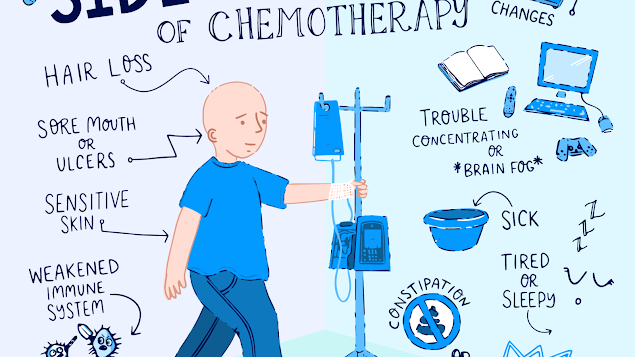Top 4 therapies performed by medical oncologists
Top 4 therapies
performed by medical oncologists
This article will discuss the types of
therapies that medical oncologists perform for treating cancer. Not only this,
but at the end of this article, I will also suggest you the best medical oncologist in Delhi.
Before knowing about the therapies, let us
understand who the medical oncologist is. A medical oncologist is a doctor who
has practiced oncology. Oncology is a branch of medicine that deals with
cancers (tumors)
Now various types of cancers require multiple
types of treatments. The treatment of the tumor depends on various factors,
such as the size of the tumor, location, and growth rate. After knowing in
detail about cancer that is present in a patient's body, the treatment is
performed by the doctors.
After knowing about the tumor, doctors have to
choose the type of treatment that is suitable for treating that type of tumor.
The type of tumor is selected by considering various factors, such as multiple:
●
Is treatment available?
●
How likely is that treatment that
will work?
●
Are there any significant side
effects of performing that therapy?
Through this process, the doctors get to know
which type of treatment has to be performed to cure cancer. Now, let's see the
various treatment types available for cancer treatment.
4 Types of therapies performed by
the medical oncologist
Following are the types of therapies that the
medical oncologist performs. If you want to know more about these therapies,
then you can consult with any best
medical oncologist in Rohini.
1. Immunotherapy
Immunotherapy is the therapy that helps the
immune system fight against cancerous cells in the body. With the help of this
therapy, the immune cells are found in or around the tumor cells, known as
tumor-infiltrating lymphocytes or TILs.
There are various types of immunotherapy:
●
Immune checkpoints inhibitor.
●
T-cell transfer therapy.
●
Monoclonal antibodies.
●
Treatment vaccines.
●
Immune system modulators.
Now, if we talk about the most common side
effects of immunotherapy, they are skin changes (rashes, itchiness, soreness,
redness), swelling, pain, flu-like symptoms, etc.
2. Chemotherapy
In this treatment, various drugs are used to
kill or slow the growth of cancerous cells. This therapy can be used as
curative or palliative care, or it can be used as neoadjuvant means making the
tumor smaller before surgery or radiation therapy.
Various factors are considered before
providing chemotherapy drugs:
●
Type of cancer and the size of
tumor present in your body
●
Whether you have had chemotherapy
before
●
Whether you are facing other
health issues such as heart problems or diabetes
Chemotherapy is given through various routes,
such as:
●
Oral
●
Intravenous
●
Intrathecal
●
Intraperitoneal
●
Intra-arterial
●
Intramuscular
●
Topical
Some of the chemotherapy's most common side
effects are soreness of the mouth, fatigue, nausea, and hair loss.


Comments
Post a Comment